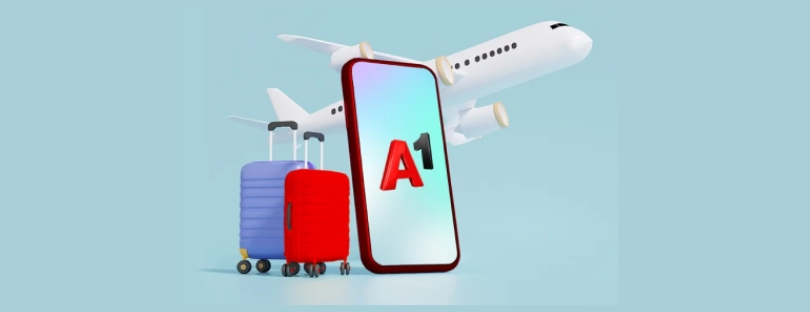
Avoid €1,000 Roaming Bill: Use Flight Mode
Gay Haines had stowed her mobile phone in her hand baggage before her flight to Barbados and forgot to set it to flight mode. The mistake cost her dear.
On arrival, she discovered that she had racked up charges of £1,095, twice the price of the transatlantic fare. “I had not used it to make or receive calls, and when I opened it after landing, there was no mention of any charges,” she says.
Haines is one of dozens of air and sea passengers who have received shock bills after their phones connected automatically to a satellite roaming network. While EU rules cap roaming fees outside Europe at €50, the legislation does not apply to satellite networks on planes and boats, which charge premium rates for data, wanted or not, unless customers actively switch off data roaming.
Some ferry passengers have been hit when their mobiles connected to the onboard system, even when sailing within the European Union, where data charges must not exceed tariffs customers pay at home.
Emma Hamilton’s monthly bill from O2 almost doubled after a return ferry trip to Ireland, even though she never left EU waters.
“My phone activated a rest-of-the-world 24-hour pass, apparently an obscure bolt-on that kicks in when you go outside Europe,” she says. “I reminded the call centre that Ireland and the UK are in Europe but was told it applied anyway.”
O2 told the Observer that customers should turn off data roaming before boarding ferries to prevent them connecting to onboard satellite services.
As pressure grows on airlines and ferry operators to provide internet services, an increasing number of passengers face being caught out – without even touching their phone – by premium rates set and billed by their home service provider. These can be over £10 per MB, the amount required to browse one web page. They can kick in if a passenger simply takes a single photo.
Extortionate charges can also stack up if a boat or plane passes close to national borders. Mobile phones are configured to pick up the strongest signal and if that happens to come from a country outside the EU, international roaming charges will kick in.
Switch your device into flight mode
Haines’s phone signal was automatically relayed from aircraft antenna via satellite to a ground network operated by AeroMobile. The Crawley-based company, a subsidiary of Panasonic Avionics, began offering inflight services in 2008 and 23 airlines have signed up. Airborne users are not automatically sent text messages by their provider detailing charges. Moreover, cabin crew on the Virgin Atlantic flight made no mention of potential charges if passengers fail to heed advice to switch to flight mode. The airline, which offers the service on half of its fleet, acknowledged that while onboard announcements warn of international roaming charges when using AeroMobile, they do not say that those who don’t use it can also be liable. It declined to state the cut it received from the charges.
Haines’s bill was levied by her company’s service provider, Intercity Technology, which sells phones and services to businesses and uses the Vodafone network.
Intercity confirmed its inflight service connects automatically, even if the phone is stowed in the overhead locker. It says: “It’s included in customers’ monthly bill as an over- charge for roaming in a country not covered by their selected tariff.” It insists it alerts customers to unusual charges and, if necessary, suspends data to protect their interests.
Haines claims she never received an alert. “The first I knew about it was when my data was cut off when I arrived at Barbados,” she says. “I assumed there had been fraudulent activity. It was only later that Intercity informed me of the reason.”
Intercity has offered to contribute £500 towards her bill as a goodwill gesture. It also promised to remind all customers to switch to flight mode.
AeroMobile says it advises airline clients to announce that roaming charges apply on board. “The passenger will receive a text from the onboard system telling them they are connected to the mobile service. However, it is their home operator that must communicate the cost.”
Intercity didn’t respond to requests for its satellite roaming charges. Vodafone, its network provider, charges up to £7.20 per MB of data for airline connections, compared with £6 by Three. BT’s charge is £9.20. All include this in their data roaming and spend cap, so customers have their data cut off after the bill reaches £35, unless they have asked for it to be lifted. EE requires customers to buy an add-on at £36 a day for 5MB. Virgin Mobile says its customers can’t connect to satellite services.
The charges can confuse customer service staff as well as customers. When Ali Hines was billed for downloading £43 of data from a Norwegian network while flying home from Indonesia, she was told by O2 that her phone must have picked up a superior signal over the border. Hines pointed out she was 10,000km from Norway at the time of the download and was then told, like Haines, she had inadvertently connected to AeroMobile.
She insists her phone was switched off, whereupon O2 reckoned it must have connected while boarding or leaving the aircraft, although the download was three hours after takeoff. “They’ve since refunded the charge, but there’s nothing to stop this from happening again,” she says.
O2 confirmed the phone had connected to AeroMobile, which uses a Norwegian mast, and that she should have received a text alert. Its satellite roaming charges are £7.50 per MB.
“We are sorry Ms Hines was given incorrect information and have credited £51 to her account,” it says.
Gay Haines, who is still left owing £600, plans to escalate her complaint to the Communications Ombudsman. “I cannot believe I am the only idiot who forgot to turn their phone to flight,” she said.
How to avoid extra charges
• The EU has banned mobile phone providers charging extra fees for users to use their allowance of minutes, texts or (most) data within EU territory. Take care if you are near a border as phones connect to the strongest signal, which could be in a non-EU country.
• Think twice before turning your data-roaming cap off. Providers have to cut you off when you’ve used €50 under EU rules, unless you ask them to lift the cap. If you do, you risk unlimited bills.
• In the air or at sea, your mobile could connect to a network in a non-EU country or an onboard satellite system on your ship or a nearby ship, in which case EU rules won’t apply. Switch your device into flight mode to avoid this.
• Complain to a dispute resolution scheme. If you feel you were unfairly charged and can’t resolve the issue with your provider, you can take your complaint to the Communications Ombudsman or adjudicator Cisas. (via)








